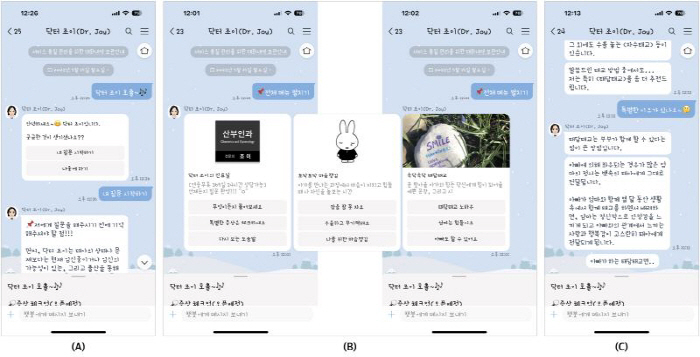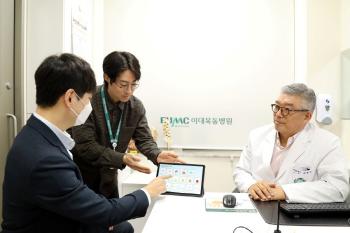Development of a chatbot-based prenatal care program to enhance maternal and fetal attachment
Oct 31, 2025
|
During pregnancy, the husband's active interest and emotional support play an important role in preventing maternal depression and forming an attachment to the fetus (maternal attachment). However, the traditional face-to-face prenatal program to draw such attention and support had a limitation that it was difficult for couples to participate together due to time and place constraints, and the limit became more pronounced during the COVID-19 period.
The research team developed a mobile chatbot intervention-based prenatal education program that allows husbands to participate together without time and space constraints, and conducted a study to see if the program is effective in collecting and improving attachment. The non-face-to-face digital prenatal program was designed using a mobile messenger-based chatbot 'Dr. Joy' developed by the research team in 2021 to provide pregnancy and delivery-related information and mental health management methods to women in the perinatal period (period before and after childbirth).
The study involved 60 primiparous women between 21 and 32 weeks of pregnancy. Prior to conducting the education, the research team surveyed 11 questions on the satisfaction of social support received by mothers from their husbands and divided them into low support groups (29 people) and high support groups (31 people) according to the score.
All female participants performed six prenatal education tasks (taming, reading fairy tales, tadam, etc.) to encourage active participation of their husbands through Dr. Joy for two weeks. To analyze the effectiveness of education, the research team repeatedly measured the mother's emotional maternal attachment and cognitive-behavioral maternal attachment before and after participation in the program, and conducted a qualitative analysis of her feelings on participation in education.
As a result, chatbot-based prenatal education significantly increased emotional maternal attachment (the frequency of thinking about babies or the intensity of emotions) in all mothers regardless of the husband's level of support. In particular, in the low support group, the level of cognitive-behavioral moiety attachment, which recognizes the fetus as a single independent being and confers character or intention, was markedly elevated in comparison with the high support group. In addition, as a result of self-report, mothers responded that their feelings of happiness were expanded not only in the fetus but also in the entire family relationship, including the spouse.
Professor Park Jin-young of the Department of Mental Health said, "This study is significant in that it goes a step further from traditional maternal-centered education using digital health technology and presents a practical and efficient educational model for couples to continue healthy prenatal education together. We hope that chatbot intervention-based prenatal education will contribute not only to the emotional bond toward the husband's baby, but also to the prevention of anxiety and depression during pregnancy and the reduction of the risk of postpartum depression."
The findings were recently published in the international journal 『Scientific Reports』.
|
This article was translated by Naver AI translator.















